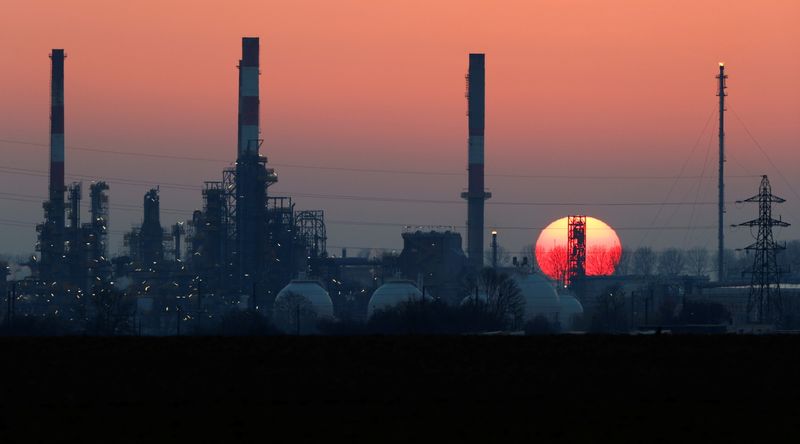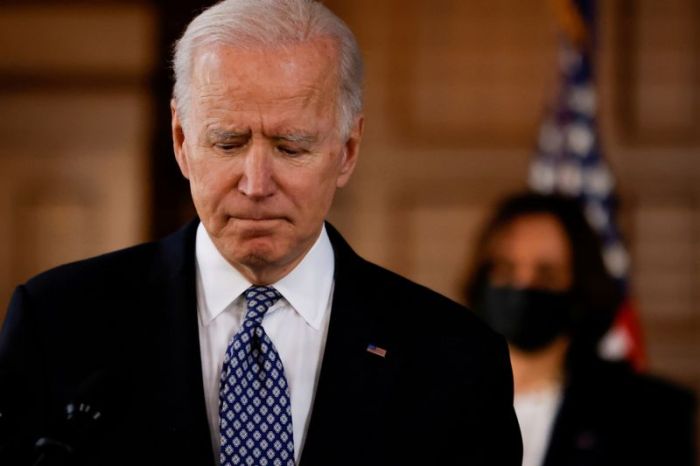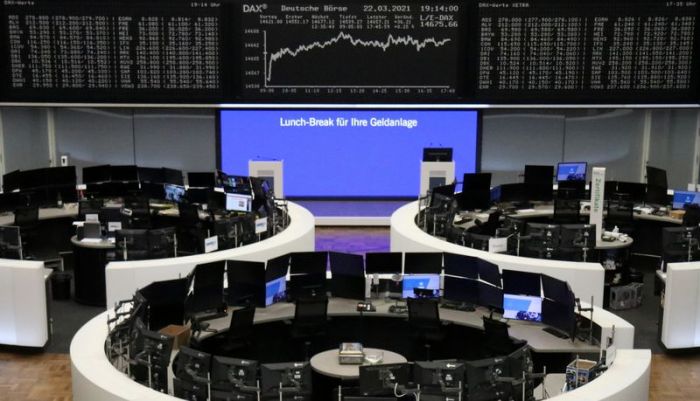NEW YORK (Reuters) – Oil prices plunged about 6% on Tuesday, falling even lower in post-settlement trade, as concerns over new pandemic curbs and slow vaccine rollouts in Europe added to oversupply uneasiness.
Brent crude futures settled down $3.83, or 5.9%, at $60.79 a barrel, after hitting a session low of $60.50. West Texas Intermediate crude (WTI) ended $3.80, or 6.2%, lower at $57.76 a barrel, after touching a low of $57.32.
Both benchmarks traded near lows not seen since Feb. 9.
The front-month Brent spread flipped into a small contango for the first time since January. Contango is where front-month contracts are cheaper than future months, and could encourage traders to put oil into storage.
In post-settlement activity U.S. crude traded as low as $57.25 a barrel, while Brent crude touched $60.27 a barrel. The shift lower came after U.S. crude oil stocks rose and gasoline inventories fell in the most recent week, according to trading sources citing data from industry group the American Petroleum Institute.
Crude inventories jumped by 2.9 million barrels in the week to March 19, compared with analysts’ expectations in a Reuters’ poll for a decline of about 300,000 barrels, the sources said.
Government data is due at 10:30 a.m. ET on Wednesday.
“The road to oil demand recovery appears to be full of obstacles as the world continues to fight the COVID-19 pandemic,” said Bjornar Tonhaugen, head of oil markets at Rystad Energy.
“Oil prices are declining again on Tuesday, proving that last week’s correction was not deep enough and that the market had been trading lately with an excessively bullish sentiment, overlooking the pandemic’s risk.”
Extended lockdowns in Europe are being driven by the threat of a third wave, with a new variant of the coronavirus on the continent.
Germany, Europe’s biggest oil consumer, is extending its lockdown until April 18.
Nearly a third of France entered a month-long lockdown on Saturday following a jump in cases in Paris and parts of northern France.
“The German situation kicked it off, but there’s a lot of crude oil out there,” said Bob Yawger, director of energy futures at Mizuho in New York. “There is no flipside to the oil inventories. We are awash in oil.”
A stronger U.S. dollar also weighed on prices, as it usually makes greenback-denominated oil more expensive for holders of other currencies. [USD/]
Physical crude markets are indicating that demand is lower, much more so than the futures market.
“Physical prices have been weaker than futures have been suggesting for several weeks now,” said Lachlan Shaw, head of commodity research at National Australia Bank.
(Reporting by Ahmad Ghaddar in London Additional reporting by Sonali Paul in Melbourne; Editing by Jan Harvey and Steve Orlofsky)




















